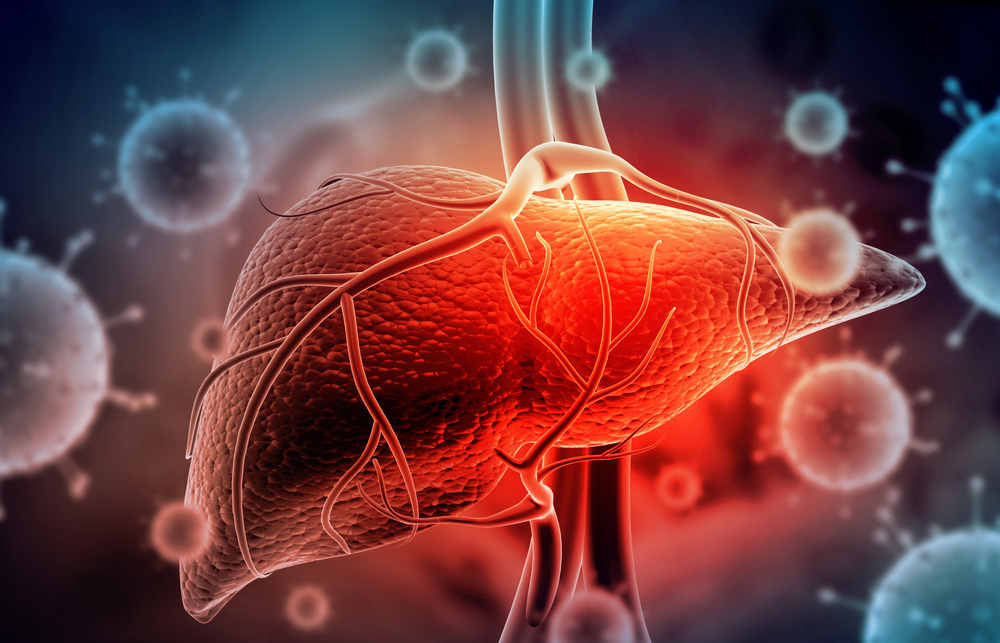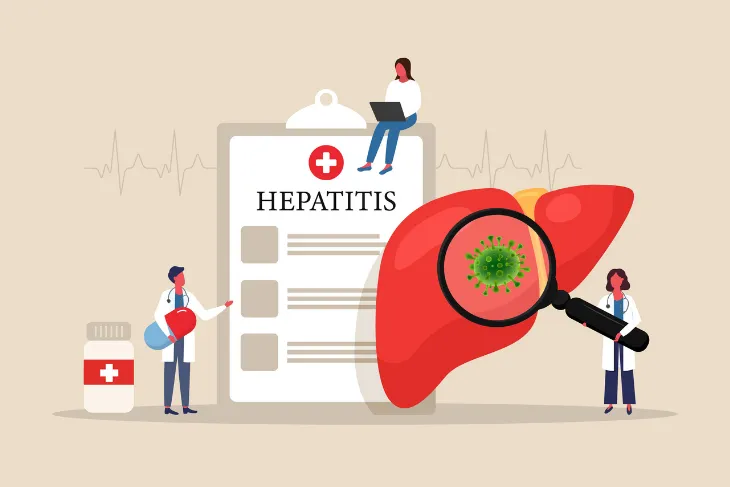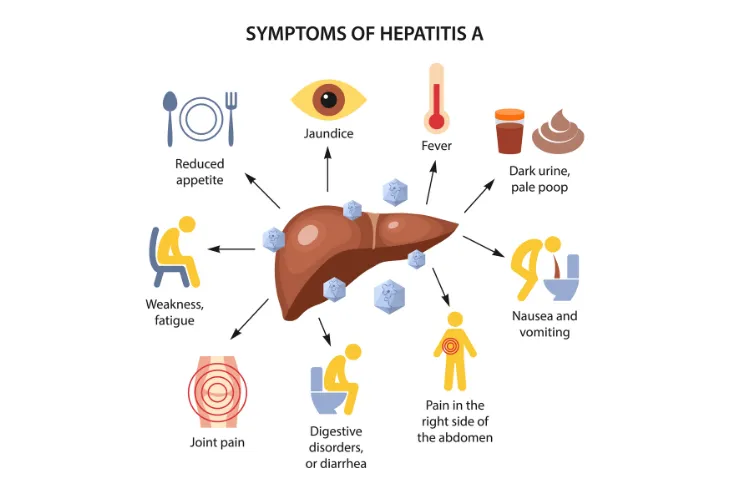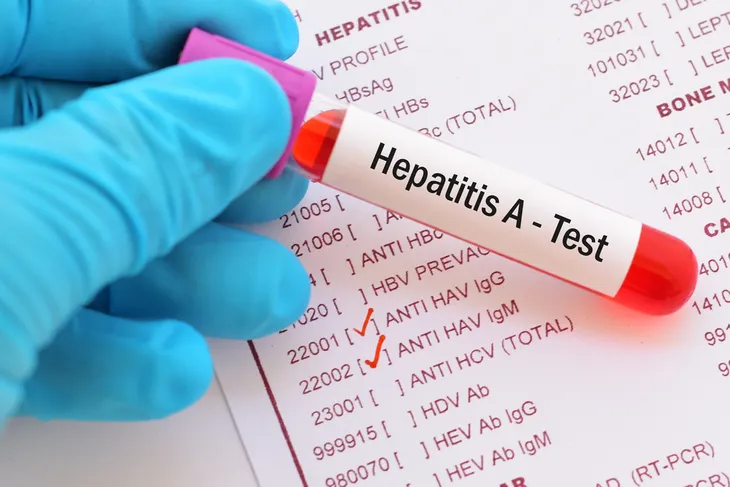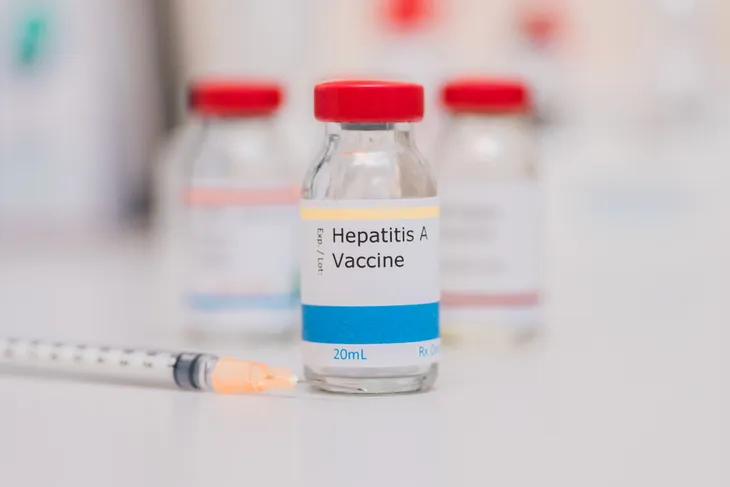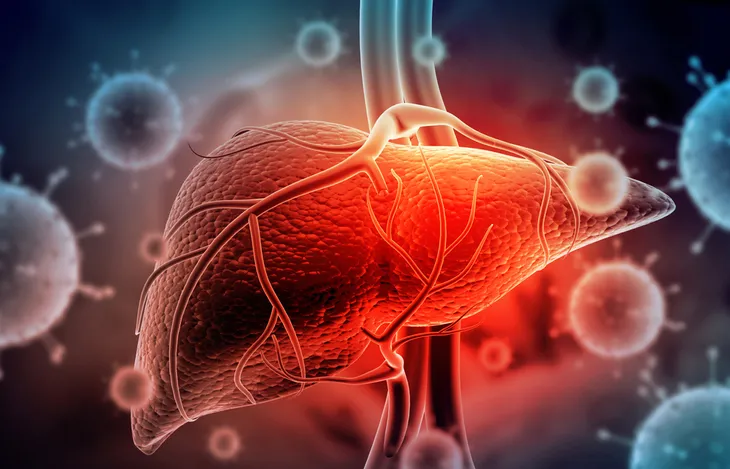Hepatitis A is “a highly contagious liver infection caused by the hepatitis A virus,” explains the Mayo Clinic. Luckily, unlike hepatitis B or C, hepatitis A doesn’t lead to chronic liver disease. That said, it’s still an infection you don’t want to get and it does have unpleasant symptoms. But what is it exactly and what are the risks?
Today, we’re going to explore everything there is to know about hepatitis A including the common signs, causes, and treatment options available. We’ll also uncover a few prevention tips to help protect you from getting the virus.
What Is Hepatitis A?
Healthline says, “Hepatitis refers to inflammation of the liver caused by exposure to toxins, alcohol misuse, immune diseases, or infection.” Although, viruses cause most of the cases.
Hepatitis A is very contagious and can spread easily through contaminated water or food. There are many cases of hepatitis A around the world, in fact, the World Health Organization (WHO) says 1.4 million cases occur each year. Luckily, it usually isn’t very serious but it’s still important to be aware of the signs, causes, and what you can do about it.
Signs and Symptoms of Hepatitis A
Symptoms typically appear within 15 to 20-days after contracting the virus. While younger children (age 6-years and under) usually show no symptoms, older children, teens, and adults usually develop mild symptoms.
Common symptoms of hepatitis A are flu-like symptoms. This includes fever, body aches, and fatigue. You may also experience abdominal pain, loss of appetite, unexplained weight loss, dark urine, light-colored stool, and jaundice (yellowing of the eyes and skin).
Causes
The cause of a hepatitis A infection is the hepatitis A virus. You can contract the virus after ingesting food or beverages that have been “contaminated with fecal matter that contains the virus,” says Healthline. The virus will then spread through your bloodstream and then to the liver, causing inflammation and swelling.
It’s important to note, ingesting contaminated foods and liquids isn’t the only way to contract the virus. It can spread from person to person too. So if someone in your household has it, it’s best to stay away until they recover.
How Do You Get Hepatitis A?
There are a few ways you can get hepatitis A. We already know it’s typically transmitted by ingesting contaminated food and beverages but how does that happen? For starters, if an individual with the hepatitis A virus prepares your food and you eat the food, you can get the virus.
Further, you can also get it by eating food handled by a place with poor hygiene rules, drinking polluted water, or by coming into contact with hepatitis A-infected fecal matter. Healthline notes, after contracting the virus you’ll be contagious for 2-weeks before your symptoms even show up. Thankfully, you’ll stop being contagious about 1-week after your symptoms appear.
When to See a Doctor
The good news is recovering from the hepatitis A virus doesn’t usually lead to life-threatening complications. An individual can often recover in a few weeks (sometimes a few months). And after getting it, your body will build immunity to help you from getting it again. So when should you see a doctor?
You should contact your doctor if your symptoms don’t go away. It can also be serious for older individuals or those with chronic liver disease, or other health problems. It’s also a good idea to contact your doctor to ensure you have the hepatitis A vaccine.
Diagnosing Hepatitis A
If you think you’ve contracted the hepatitis A virus, book an appointment with your doctor to be diagnosed. Be prepared to share all your symptoms.
If you aren’t displaying signs of jaundice, it can be hard to diagnose with just a physical examination. So, your doctor may also request a blood test to look for the presence of a bacterial or viral infection. The blood test will also determine if you have the hepatitis A virus.
Are There Complications?
The Mayo Clinic explains, “Unlike other types of viral hepatitis, hepatitis A does not cause long-term liver damage, and it doesn’t become chronic.” However, as mentioned earlier, it can be serious for individuals with chronic liver disease or older adults as rare cases may lead to sudden loss of liver function.
If an individual develops acute liver failure, they’ll need to stay in the hospital for treatment. In some cases, the individual may require a liver transplant.
Risk Factors
Certain factors can increase your risk of contracting the virus. For example, spending an extended time (such as vacationing) in a place where hepatitis A is common can increase your risk. This is especially true in countries with low sanitation standards and a lack of safe water.
Living in the same household with someone who is currently hepatitis A-positive can also increase your risk. Finally, being HIV-positive can also increase your risk.
Treatment
Since hepatitis A is a short-term viral infection, it will usually go away on its own. This means there isn’t any formal treatment such as medication.
The infection should clear up in a few weeks. To help ease your symptoms, make sure you get plenty of rest, eat a healthy diet, stay hydrated, and avoid alcohol.
Preventing Hepatitis A
If you don’t want to get the hepatitis A virus, it’s important that you take preventative steps to avoid it. First, the most effective way to avoid hepatitis A is by getting the hepatitis A vaccine. The vaccines include two injections administered 6 to 12-months apart.
If you plan on traveling to a country where hepatitis A is common and you don’t already have the vaccine, it’s recommended that you get your first dose at least 2-weeks before traveling. This is because it typically takes about 2-weeks for your body to start building immunity. You can check the Centers for Disease Control and Prevention website to find out if the vaccine is recommended for the country you are traveling to.
Prevention: Wash Your Hands Regularly
Another great prevention tip is to always wash your hands regularly. Medical News Today says, “HAV can survive for up to 4 hours on the fingertips, so handwashing and safe food practices can help prevent transmission.”
Be sure to wash your hands effectively with soap and water (for about 20-seconds or more) before eating, drinking, and after using the bathroom.
Prevention: Be Cautious of Foods and Drinks
Staying away from contaminated food and drinks is another effective way to protect yourself. Stay up to date on current recalls and when traveling to other countries avoid uncooked food, raw shellfish, and food that may have been washed in contaminated water.
When traveling, it would also be a good idea to drink bottled water instead of local water, especially in countries where hepatitis A is a high risk.
The Takeaway
Even though hepatitis A doesn’t usually lead to life-threatening complications, it’s still a good idea to do everything you can to prevent contracting the virus. You can get the vaccine and be cautious of what you eat and drink when traveling. Book an appointment with your doctor to find out if you’re up to date on your vaccines and which ones are right for you.
